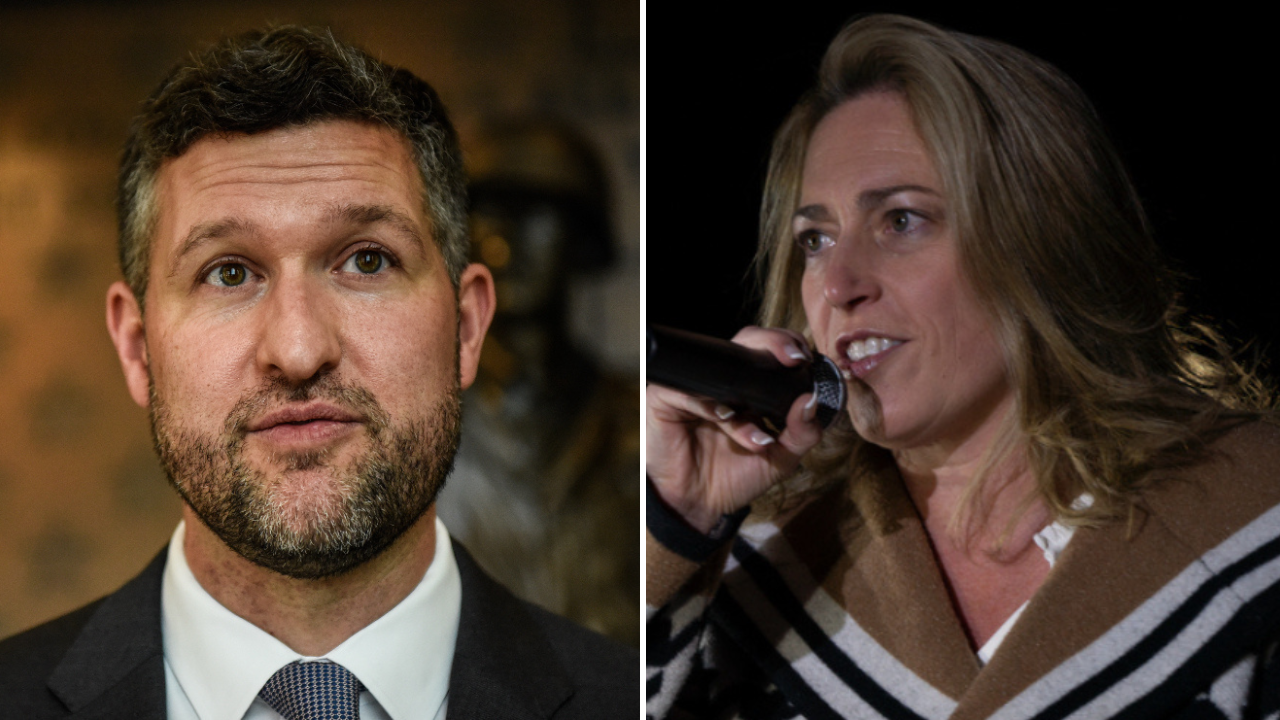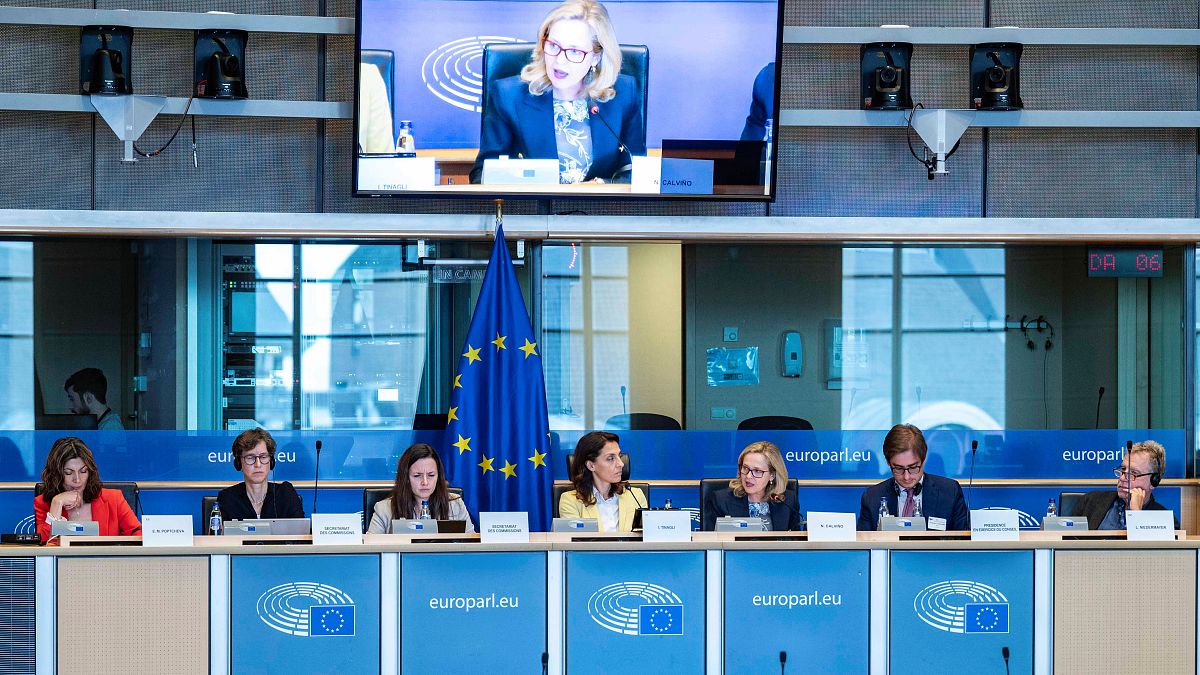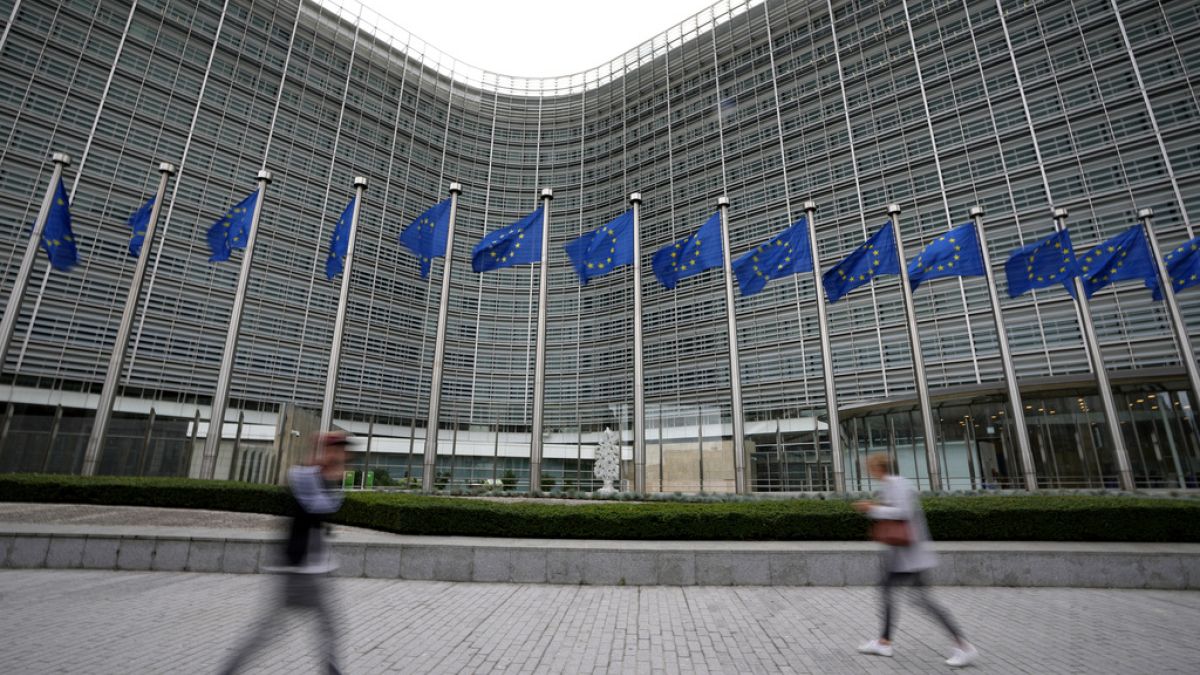Sitting on the terrace of a café, Daniel, a 60-year-old retired building contractor, is reluctant to talk about how he will vote in upcoming high-stakes snap legislative elections in France.
But the resident of Châteauroux, a small city in the centre of the country, has a lot of anger to vent against Emmanuel Macron. He believes the president is smug like the elites in Paris, has done little to curb rising crime and his move to increase the retirement age by two years is unfair.
The traditional left and rightwing parties that Daniel has voted for in the past have disappointed, so he is considering casting a first ballot for Marine Le Pen’s far-right Rassemblement National.
“I’m not saying I will definitely vote for the RN, but they have interesting things to say,” he says, such as the need to clamp down on immigration. He is not put off by the party’s historical roots in fascism, symbolised by its now 95-year-old founder, Jean-Marie Le Pen, who once likened the Nazi gas chambers to a “detail of history”.
“This is not Jean-Marie Le Pen’s party any more,” says Daniel, who asked not to use his surname, “and it’s dishonest to keep pretending it is.”
Voters across France are grappling with a similar choice: are they ready to usher the nationalist, populist RN, once relegated to the fringes of politics, into the heart of government?
The answer will come in just over three weeks at the end of a lightning campaign sparked by Macron’s shock call for early legislative elections after being trounced by the RN in European elections on June 9.
The outcome of the snap poll on June 30 and the second round on July 7 will depend largely on whether voters see the RN of today — the one that Marine Le Pen has spent more than a decade crafting into a smoother, more professional force — as up to the task.
Voting patterns in the Berry region of central France where Daniel lives show how the RN is making inroads in new areas and voter segments. It is conquering a swath of France that academics have called “the diagonal of emptiness” for its depopulation, paucity of high-speed train links and weak economy.
About 250 kilometres south of Paris, Berry is made up of the Indre and Cher departments, and is home to France’s wheat-growing heartland, small villages and the cities of Châteauroux and Bourges. Support for the RN increased by double digits in European elections this month versus five years ago.

Polling from Elabe shows the RN on track for another big win with 31 per cent of voting intentions in the new legislative elections, ahead of a new leftwing coalition with 28 per cent, and far ahead of Macron’s centrist alliance with 18 per cent.
Crucially, a unity pact struck by four leftwing parties on Thursday means Macron’s party is at risk of being squeezed out of many run-offs, leaving two-way contests between the left and the far right.
The polls suggest Le Pen’s party could gain enough seats to make a claim to the prime minister’s office — and could even win an outright majority. That would force Macron into an uncomfortable power-sharing government with the RN’s charismatic 28-year-old party chief, Jordan Bardella, as prime minister.
An RN win would be a seismic moment in France’s modern history: the far right has never been in power save for in the Vichy era after the country was partly occupied by Germany in 1940. Given Le Pen’s Euroscepticism and desire to take power back from Brussels, there could be significant repercussions for France’s relationship with the EU and its closest partner, Germany.
Securing the premiership would give Le Pen’s party a chance to enact its programme of curbs on immigration, tax cuts that would aggravate an already large deficit left by Macron, and radical ideas to exempt France from EU single market rules.

Pascal Perrineau, an academic and author who has studied the French far right for decades, says he can no longer rule out the idea that voters are willing to see the RN leading the government.
“Only a few years ago, I would have said their victory was highly unlikely,” he says. “Now I see it is possible and even probable.”
Macron’s bet is that the country will blink and that Le Pen will fall short of an outright majority. This week he reached for well-honed arguments he has successfully used to beat Le Pen and her party over the years — that the far right is too incompetent to govern, it would tank the economy, divide society with racism and antisemitism, and threaten the rule of law.
“I hear the anger — message received,” he said alluding to frustration-fuelled protest votes for the RN. But “what would happen to your pensions? They would no longer be able to pay them. What would happen to your mortgages?
“If the RN came to power, what would happen to our values or our fellow citizens of diverse origins? . . . These are the questions [before you] today.”
Le Pen dismisses Macron’s arguments as scaremongering. With Bardella at her side, she insists they are ready to govern.

The social media savvy Bardella has been key to expanding the RN’s appeal among those historically wary of the party — retirees, white-collar workers and women — all of whom voted for the party in the European election at higher levels than before.
“People here support RN and they love Bardella, they think he’s going to give them the moon and a cheque each,” says a restaurant owner in Châteauroux, who declined to be named.
The Le Pen-Bardella duo mock Macron’s criticism of their economic policies by pointing out his government has caused deficits to balloon. On the hot-button issues of the RN’s previous cosiness with Russia and its antisemitic past, Le Pen has sought to defuse them by quickly declaring her support for Ukraine in 2022 and supporting France’s Jewish community after the Hamas attack in Israel on October 7.
Kévin Pfeffer, an MP from Moselle in eastern France and RN party treasurer, says victory is within reach and an outright majority “attainable”, making Le Pen a frontrunner for the 2027 presidential election.
“Marine Le Pen’s mission has been to take each critique made against the RN and dismantle them methodically one by one,” he says. “The French are ready. They are sending us a signal that they want to try us out.”
In the Berry region as elsewhere, RN voting results have been helped by Le Pen’s long effort to “detoxify” the movement her father founded in 1972 under the name the Front National, which included figures who supported the Nazi collaborationist Vichy government during second world war.
When she took over in 2011, she expelled the party’s more radical elements, including her father, and rebranded it as the Rassemblement National. While keeping its core DNA of protecting French identity, Le Pen focused on cost of living issues and the plight of low-income workers.
The RN vote in Indre leapt to 40 per cent in the European election, up 26 percentage points from the last vote in 2019, while Macron’s support increased by 4 percentage points.
In historically left-leaning Saint-Benoît-du-Sault, Le Pen’s scores have also steadily risen in the past decade. This year the picturesque medieval village filled with flower boxes — population 550 — saw its last boulangerie and a butcher’s shop close. The shuttering of a local cookware factory in 2019 was another blow.
Le Pen has cast herself as the champion of such places — what she calls the “forgotten France” — far from the wealth, power and cultural cache of Paris and its population of well-off Macron voters.
Damien Barré, Saint-Benoît-du-Sault’s left-leaning young mayor, is determined to combat people’s sense of decline by fighting to retain businesses and services. His projects include landscaping, building restoration and cultural programming. He even went on a quest last year to find a male goat to mate with the village’s ageing herd.
Although the sense of being left behind is a powerful motor of the RN vote, he says, its appeal is now wider than that.

“We have been told for a decade that voting for the RN is a protest vote, it’s a fed-up vote, but actually since Marine Le Pen took over the party it is a vote of support. People will tell you, ‘I support their programme, that is why I am voting for them’,” Barré says.
Although mostly rural, voters in Indre and Cher are also worried about crime and immigration — core drivers of the RN vote. A government plan to build a facility to house asylum seekers in a village near Saint-Benoît-du-Sault split opinion and sparked protests.
In Châteauroux, residents are haunted by the stabbing of 15-year-old Matisse Marchais in April. When two people of Afghan descent were indicted for the crime, RN party chief Bardella declared that Matisse was a “victim of out of control immigration that brings predators to our door”.
On a national level, the sociology of the RN vote is also changing.
In the European election, 34 per cent of 60-somethings voted RN, according to an Ipsos analysis, up from 23 per cent in 2019. They even outperformed Macron’s alliance among pensioners, a cohort that has long been loyal to the president and which accounts for a third of the electorate.
“There is no longer a segment of the population or a corner of the country that is off limits for the RN,” says Brice Teinturier, a pollster from Ipsos. “They have become a catch-all party.”
The RN’s new strength with white-collar workers can be seen in Bourges, a city of 66,000 in the Cher department.

After a period of industrial decline, Bourges has enjoyed an economic boost in recent years as a hub for defence companies benefiting from the war in Ukraine. The biggest private employer, missile group MBDA, is hiring staff to build a second factory, and munitions maker Nexter is also expanding.
Yann Galut, the leftist mayor, says he was “shocked” by the 8 percentage point jump in RN support, which was not as big as in nearby rural areas, but significant in a historically moderate city.
He fears the far right could soon capture all three of Cher’s seats in the legislature for the first time. Using a French term for voters’ desire to throw the political class out of office, he says there is “an explosive cocktail of dégagisme and a deep hatred of Emmanuel Macron.”
He adds: “I don’t believe the RN has the capacity to run the country and I abhor their politics that play on fears. Yet they are on the verge of power.”



































